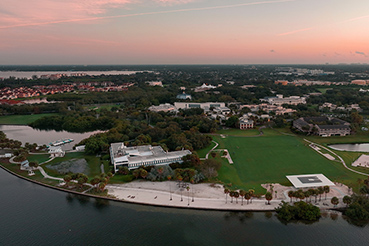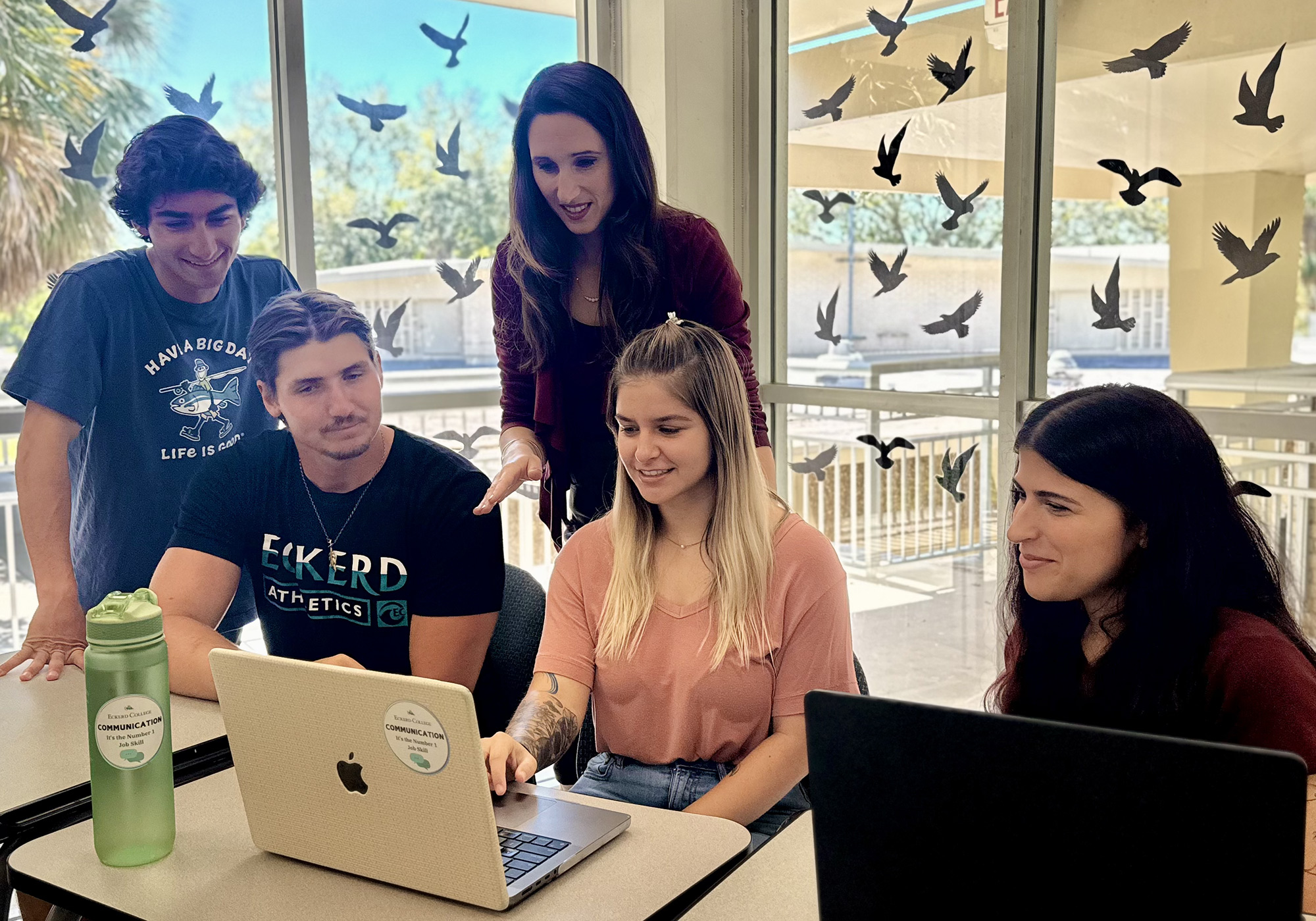What once was a few Eckerd College Winter Term courses is now a fully formed minor in AI studies.
Associate Professor of Communication Julia Hildebrand, Ph.D., and Associate Professor of Rhetoric and Assistant Dean for Artificial Intelligence and Learning Integrity Alexis Ramsey-Tobienne, Ph.D., designed the new interdisciplinary minor to meet the needs of students and the job market while tapping into faculty expertise.
“Across my communication and media courses, the topic has become increasingly relevant over the last two years. I’ve been integrating more and more lessons, discussions and activities related to AI,” Hildebrand says. “Employers are looking for candidates who have an understanding of and experience with AI services and tools. So that’s us as a college also responding to what the workplace needs, getting students ready for it, and, as a result, for students to be more competitive on the job market as well.”
The five-course minor is built on two foundational classes: “AI Culture and Communication” and “Writing in an AI World.”
“Learning more about AI at Eckerd College has made me feel informed and prepared to navigate a world where AI is quickly evolving and becoming integrated in our daily lives,” says Sydney Campbell-Mathew, a junior environmental studies student from Bradenton, Florida. “The course AI Culture and Communication not only gave me a strong foundation in the ethical and practical implications of AI but also sparked my curiosity in its creative potential. Exploring and experimenting with different AI tools has been surprisingly fun and rewarding.”
The additional three courses can be chosen from a variety of disciplines to fit the student’s interests. For budding computer scientists, there is Data Science Fundamentals and Evolutionary Computation. And for future ethicists, the minor offers courses in “Media Ethics” and “Philosophy of AI.” Even business students can find value in the minor with courses in Digital Marketing and Business Analytics at the ready.
“It was clear that we had the expertise, we had the interest, and we had the means,” explains Hildebrand, who is the coordinator for the AI studies minor. “So, basically, it was about putting it all together.”
It couldn’t have come at a better time. Students have become more and more reliant on AI for coursework, and national studies are sending up warning signals about the new and creative ways students are utilizing AI to complete assignments.
“AI is definitely a balancing act that I think so many of us in higher education are dealing with,” says Ramsey-Tobienne, who also oversees the College Academic Honor Council. “As professors, we have to decide how, if and when to use it, and we need to help our students develop into critical consumers of AI. Indeed, critical AI literacy is really the foundation of so much of what we’re doing in the minor.
“For better or worse, AI is not going anywhere,” Ramsey-Tobienne adds. “And I think we do ourselves a disservice if we’re not helping our students to understand how to navigate this new AI world.”
Some students will outright refuse to engage in the technology because of the environmental impacts, ethical concerns or because of privacy issues—a reality the professors address with alternative assignments and philosophical discussion over 100% application usage assignments.
Even more intriguing are the implications of the technology outside the classroom and workplace.
“A topic that generates a lot of engagement is the one about AI relationships,” Hildebrand recalls. “People are developing friendships with chatbots, or even romantic relationships, and students are debating: To what extent are you cheating on your human partner if you are also ‘dating’ an AI? This seems to be both an intriguing and concerning question for students to discuss.”














